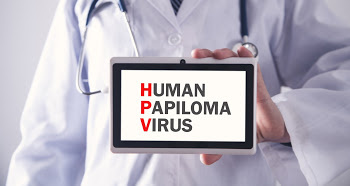
Do HPV vaccines prevent cancers and genital warts?

HPV vaccines are an effective way to reduce the risk for certain types of cancer and genital warts, but they do not eliminate the risk completely.
HPV stands for human papillomavirus. The term actually refers to over 200 viruses. Most types of HPV do not cause problems. The body’s immune system clears the infection, and people might not even know they have had it.
But in people with persistent infections, HPV can lead to cancers of the cervix, vagina, vulva, penis and anus. It can also cause oral cancers and genital warts.
Scientists have developed 3 HPV vaccines to lower the risk of HPV infection:
- Cervarix® – protects against HPV types 16 and 18.
- Gardasil® – protects against HPV types 6, 11, 16 and 18.
- Gardasil® 9 – protects against HPV types 6, 11, 16, 18, 31, 33, 45, 52, and 58.
According to the National Cancer Institute, HPV types 16 and 18 cause about 70% of cervical cancers and a higher percentage of other HPV-related cancers. About 90% of genital warts are caused by HPV types 6 and 11.
HPV types 31, 33, 45, 52, and 58 are also linked to cancer.
HPV vaccines are recommended for both males and females between the ages of 9 and 26. It is best to be vaccinated before a person becomes sexually active and exposed to HPV, but vaccination after this point may still be beneficial.
People aged 27 to 45 may also be vaccinated.
Typically, HPV vaccines are given in a series of 2 or 3 “shots.” People under age 15 need two shots spaced 6 to 12 months apart. Those aged 15 and over (and those with weakened immune systems) need 3 shots.
The HPV is considered safe, although some people experience short-term pain or redness at the injection site. Fever and headache are also possible. In rarer cases, people feel dizzy or faint.
In October 2019, the World Health Organization (WHO) reported that 100 countries had introduced the HPV vaccine into their national schedules. However, these countries represent only 30% of the global target population, the WHO said. In addition, the vaccine is given less frequently in low-income and lower-middle-income countries.
Even if you’ve been vaccinated against HPV, it’s still important to have sex safely. That means using a condom and/or dental dam every time you have sex. You and your partners should know each other’s sexual histories and be tested for sexually-transmitted infections (STIs).
HPV vaccines can protect from the most common HPV types linked to cancer and genital warts, but it does not protect from all of them. In addition, the vaccines do not protect from other STIs like gonorrhea, chlamydia, and HIV.
Sexually-active women who have been vaccinated against HPV should still have routine cervical cancer screenings.
Resources
- American Cancer Society - “ACS Updates HPV Vaccination Recommendations to Start at Age 9”
(July 8, 2020)
https://www.cancer.org/latest-news/acs-updates-hpv-vaccination-recommendations-to-start-at-age-9.html - Centers for Disease Control and Prevention - “Human Papillomavirus Vaccination for Adults: Updated Recommendations of the Advisory Committee on Immunization Practices”
Meites, Elissa, MD, et al.
(August 16, 2019)
https://www.cdc.gov/mmwr/volumes/68/wr/mm6832a3.htm - “Vaccinating Boys and Girls”
(Page last reviewed: August 15, 2019)
https://www.cdc.gov/hpv/parents/vaccine.html - Dartmouth Geisel School of Medicine - “HPV Vaccines That Work in U.S. Women May Miss the Target in Women From Other Countries”
(June 4, 2020)
https://geiselmed.dartmouth.edu/news/2020/hpv-vaccines-that-work-in-u-s-women-may-miss-the-target-in-women-from-other-countries/ - National Cancer Institute - “Human Papillomavirus (HPV) Vaccines”
(Reviewed: September 9, 2019)
https://www.cancer.gov/about-cancer/causes-prevention/risk/infectious-agents/hpv-vaccine-fact-sheet - UChicago Medicine - “The HPV vaccine: What parents need to know”
Slomski, Anita
(January 26, 2020)
https://www.uchicagomedicine.org/forefront/prevention-and-screening-articles/the-hpv-vaccine-what-parents-need-to-know - World Health Organization - “Major milestone reached as 100 countries have introduced HPV vaccine into national schedule”
(October 31, 2019)
https://www.who.int/news-room/detail/31-10-2019-major-milestone-reached-as-100-countries-have-introduced-hpv-vaccine-into-national-schedule






